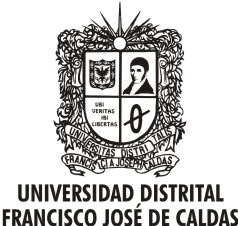
8th International Conference on Applied Informatics
8 to 11 October 2025
Université Mohammed VI Polytechnique
Ben Guerir,
Morocco 
Keynote Speakers

Christian Grévisse
E-learning specialist at the University of Luxembourg. A computer scientist by training, he designs, develops and evaluates technological solutions for e-learning and e-assessment in computer science, medical and nursing education. He provides both pedagogical and technological advice to health professionals regarding teaching and learning. His current research interests include scaffolding support in simulation-based training and the application of Large Language Models in Technology Enhanced Learning. He has published around 30 papers so far and is member of several academic and scientific committees. He teaches technology-related topics to computer science, medicine and nursing students. Finally, he has accompanied or supervised around 20 students in both Europe and Latin America in their Bachelor, Master or PhD theses.
Keynote: Technology Enhanced Learning: From Computer Science to Simulation in Healthcare
Abstract: Technological advancements have transformed the way we teach and learn. This has not begun with the information age, but the pace in recent years has certainly increased. A diverse field of devices, more computational resources, advances in networking and artificial intelligence - all these factors enable new forms of learning, independently of the age, location or time. In this talk, we will accompany a millennial in his journey through the e-learning landscape, first as a user, then as a developer and researcher. We will cover different developments in Technology Enhanced Learning (TEL), starting in computer science education, followed by simulation in healthcare education. We will also have a look at the future of TEL in light of recent advancements in generative AI.

Sven von Brand
Software Engineer with a Masters Degree in Informatics and Telecommunications with 10 years of experience teaching and developing video games. Co founder of the game company Abstract Digital, current president of the game developers association of Chile, VG Chile and college professor of game development courses for over 10 years.
Keynote: Empowering Game Design though Software Architecture in Tormented Souls a Case Study
Abstract: Tormented Souls is a game developed in Chile that has sold over 400 thousand copies worldwide through Steam, Playstation, Xbox and Nintendo. During development our company was in charge of all software development and to be able to make the game in the time and budget we designed the software architecture to improve the speed and options for the gameplay developers and game designers to make content faster, while still being flexible and interesting. The most important aspect of this development is that both the systems and the content were being developed simultaneously, so initial content was slower, but guided the tools, while later content was faster to use and was guided by features of the tools.
Organized by
Sponsored by
2018 - 2025 All rights reserved







